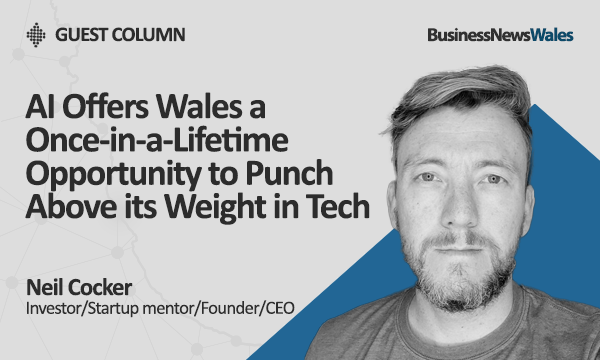The numbers are still chastening. Just 47,727 people work in digital roles across Wales – a mere three per cent of our total workforce.
We lag behind the rest of the UK on everything from broadband take-up to basic online skills. Yet this very deficit could be our super-power.
Like sub-Saharan Africa, which skipped copper landlines and jumped straight to mobile phones, Wales can leapfrog the legacy stage and throw itself wholly at the new frontier: Artificial Intelligence. But, as in Africa and other such examples of technological leapfrogging, there needs to be institutional flexibility and support for the next stage.
Westminster can apparently see this opportunity. The Prime Minister’s new TechFirst programme, £187 million for schools plus a pledge to upskill 7.5 million workers by 2030, explicitly names AI literacy as Britain’s next competitive edge.
For a nation the size of Wales, that investment is an invitation to sprint while bigger regions are still lacing their trainers.
The tools are on our side. Low-code platforms such as Lovable, Bolt and Replit let founders spin up a web app frontend, a payments layer, and integrate an AI chatbot in a handful of hours.
OpenAI’s Sam Altman predicts “one person plus 10,000 GPUs” companies worth billions, insisting that tiny teams can now out-earn yesterday’s unicorns. In other words, scale has slipped from headcount to horsepower. And horsepower is cheap.
But there is a sting in that tail. When it costs pennies to build, the world will inevitably flood with pointless apps and sites. Validation – the discipline of proving a customer will pay before you write a single line of code, matters more than ever. I spent last year teaching over 300 Welsh founders to run customer discovery processes and tests that expose a bad idea within days, not months. The goal is ruthless: kill 99 ideas that were never going to survive so the hundredth can live. And flourish.
Our problem is cultural, not technical. Wales boasts a very generous support ecosystem – grants, hubs, incubators – yet that generosity too often breeds complacency.
Because the support is kind, and ever-present, founders are able to cling to pet projects for years, drawing a pittance while their sunk-cost fallacy deepens.
A sharper challenge early on would free them to pivot faster, earn sooner and contribute more to the economy. I have seen it first-hand in London: the start-up that shelved three doomed prototypes inside a single accelerator cohort now turns over six figures after eight months. Here in Wales: “don’t worry, here’s another marketing workshop and a free desk”. All the while, no real challenge is forthcoming.
Happily, AI makes that path to real customer understanding much easier. A simple prototype created in a few hours, connected to a dummy data set can be demoed to a potential buyer the same afternoon. Indeed, after four months of fruitless conversations with clients about what they could theoretically do (“sounds interesting, come back when you have something to show us”), someone who built a prototype in one of my workshops was able to sell a trial with a customer the very next day.
And there is a deeper purpose. Better-paid digital work on home soil means fewer 18-year-olds forced to take the M4 east. Careers Wales already tracks soaring demand for AI-literate roles across energy, creative industries and healthcare. If we couple that demand with validation-obsessed, capital-efficient companies, we can keep the talent, and the tax base, right here.
So here is the challenge. To Cardiff Bay and Westminster: funnel a slice of TechFirst cash into rapid-validation-with-AI boot camps, not just coding classes. To incubators and grant panels: reward proof of demand, not prettiness of deck. To every would-be founder in Wales: your next prototype costs less than a night out – but the only applause that counts is a paying customer.
Get those pieces right and that bleak three-per-cent statistic becomes an irrelevance.
What will matter is the multiplier: how many global customers each Welsh job serves because a small, fearless team learned faster and built only what was worth building.
In the age of AI, that multiplier can be limitless, but only if we demand proof of value from day one. Punching above our weight starts with landing the punches that count.
Neil is currently running workshops about how to build prototypes, MVPs, and internal tools with AI – https://build-in-a-day-workshop.lovable.app/
